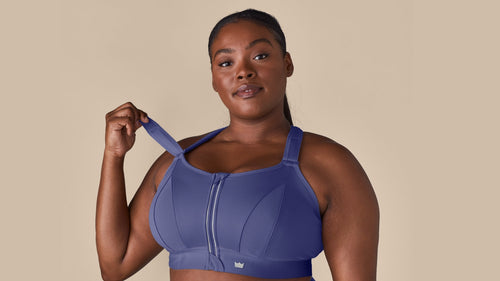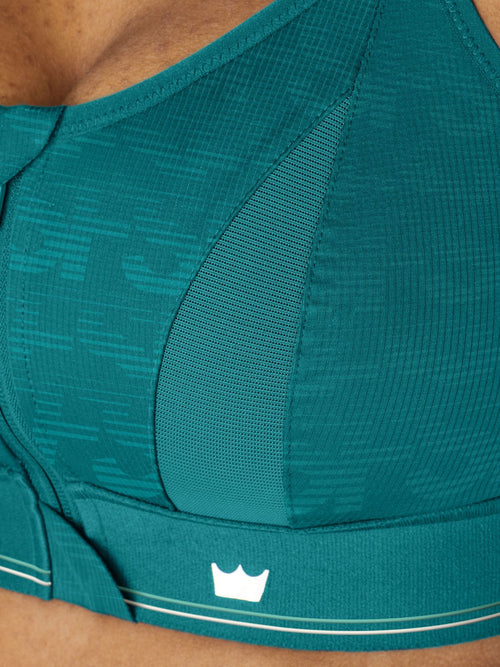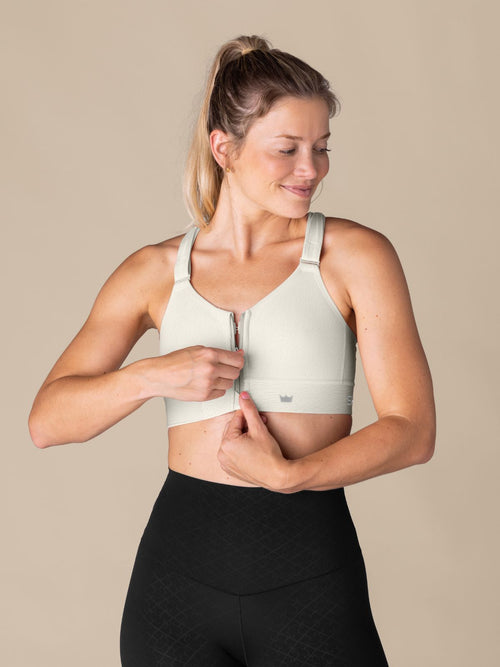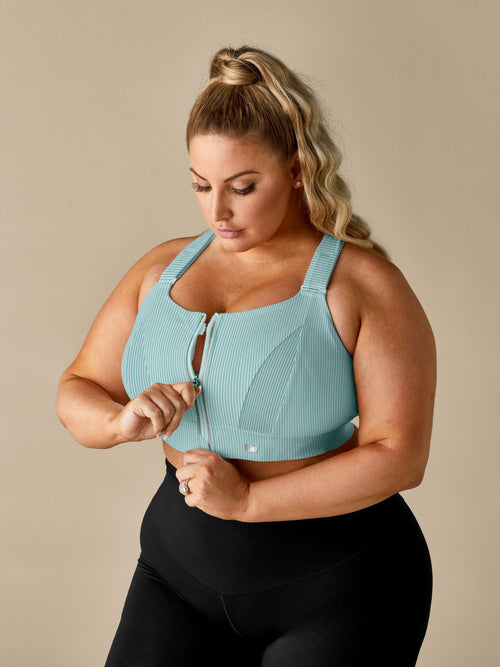Anniversary Sale 20% Off Shop Now

Breastfeeding Tips: What Moms Need to Know Before Your Newborn Arrives
Being a new mom can be an overwhelming experience – it’s exciting, terrifying, rewarding and draining all at the same time. And on top of that, if you choose to breastfeed, you are the main source of nutrition for your little bundle of joy. Nursing your newborn baby isn’t an easy task – it can be difficult, frustrating and there’s often pain! There are so many things you need to take into account, from how to latch, to how to increase your supply and setting up a schedule. So to make things easier for all new moms out there, we’ve rounded up the best and most important tips every new mom should know before starting to breastfeed.
1. 5 things to know before you start breastfeeding
- Breast milk is healthy – If you do choose to nurse, there are some benefits for your baby that you may not be aware of. Breast milk contains natural antibodies that aren’t found in formula which help in the overall health of your baby’s body – from fewer colds to a decreased chance of developing allergies.
- Mom ends up healthier too – Breastfeeding can help ward off certain cancers like breast and ovarian cancer. It also releases “mothering hormones” like prolactin which help keep sad, unhappy thoughts at bay and oxytocin which helps the uterus contract back to its pre-pregnancy shape.
- Nursing isn’t easy, it can be tough in the beginning – Your breasts will feel tender and you may experience pain, but don’t worry it is only temporary. Once baby is properly latched, the discomfort you experienced in the beginning should go away.
- Breastfeeding saves you money – By breastfeeding instead of formula feeding your baby (or even if you choose to do a combo of both), you can save hundreds in baby’s first year. And not only that, breastfeeding is also a convenient choice – baby’s food supply is always with you no matter where you are!
- Pumping is also a great option – Pumping can help encourage milk supply or relieve engorgement. It can also give Dad the opportunity to get involved in the feeding, especially for those late night feeds where you’re just exhausted!

2. What supplies do you need?
- Nipple creams – This is a must have for any breastfeeding mom. Your nipples may feel sore for the first few weeks, especially if you’re a first time mom. Look for a cream that contains lanolin to help protect, soothe and soften your dry, cracked nipples. And don’t worry, nipple creams are safe for baby so apply as needed!
- Breast pump – Investing in a good breast pump can definitely make the task easier for you. If you only plan on pumping occasionally (for night feeds, if you need to go out etc.), a simple manual pump should do the trick. If you need to pump more frequently or exclusively, then invest in an electric pump or rent a hospital grade pump. But don’t rush out and buy an expensive pump before baby gets here – wait until you’ve started breastfeeding. How well baby latches and your first days breastfeeding will determine your pumping needs.
- Nursing bra – A good nursing bra can make the world of difference! You want a bra that’s not only useful but flattering too. Not an easy combo to find. A great option is the Shefit High Impact Sports Bra for big busts. It provides outstanding support and comfort with patented adjustability and a personalized bust band. While you might not think of a sports bra as a good choice for nursing, the Shefit High Impact Sports Bra has velcro adjustable straps that unhook right above the breast and a zipper in the middle to provide easy access for baby to nurse.
- Milk storage bags – If pumping is part of your breastfeeding routine, then you’ll definitely need to pick up some milk storage bags. You can always express your milk into bottles, but storage bags give you the option of refrigerating and freezing your milk for longer storage.

Photo credit: Via Amazon | Medela
3. Nutrition While Breastfeeding
- Keep in mind whatever you eat, baby will end up having some too. There are some foods that can cause fussiness or gassiness in babies so it might be a good idea to avoid them from the start.
- Chocolate
- Spices (cinnamon, garlic, curry, chili pepper)
- Citrus fruits – oranges, lemons, limes, and grapefruit
- Strawberries
- Kiwifruit
- Pineapple
- Gassy veggies (onion, cabbage, garlic, cauliflower, broccoli, cucumbers and peppers)
- Cherries, prunes
- Coffee – a cup or two a day is fine, just don’t start drinking more than that as it can interfere with baby’s sleep.
- Alcohol – a drink or two every now and again is fine but just be wary of increasing your blood alcohol level too high as it can enter your milk supply. Wait at least two hours after your drink to nurse baby.
- What you eat and its effect on baby can be more about trial and error than anything else. Before you eliminate all the foods above, eat a small amount to see if it has any effect on your baby. Keep in mind problem foods are usually eaten 2-6 hours before a feeding. Always talk to your doctor if you suspect a food you’re eating is causing a negative reaction in your baby.
- Keep in mind that breastfeeding can be draining so keep up your energy (and your milk supply) by eating a healthy diet with plenty of fruits, vegetables and whole grains. Continue to take a multivitamin everyday (a prenatal vitamin works well).
- Drink plenty of fluids – You’ll need to keep your fluid levels up while breastfeeding so drink plenty of water, juice and milk throughout the day.

4. Important things to keep in mind
- Ask for help when you need – don’t be afraid to ask your midwife, doctor, nurse or even your own mom for tips on how to breastfeed. Getting baby positioned properly and latching correctly is important right from the very beginning.
- Let baby set the pace – For the first few weeks, most babies will breastfeed every 2-3 hours, 24 hours a day. Keep an eye out for signs of hunger like stirring, restlessness, sucking motions and lip movements. Baby should feed for about 15-20 minutes at a time.
- Let baby sleep in your room – For the first few months, it’s best for baby to sleep in the same room as you, for them and for you. Sleeping in the same room as baby reduces the risk of SIDS and can also make feeding easier (and less exhausting) for you!
- Hold off on the pacifier – A pacifier is a great tool for helping calm baby, but introducing it too soon can interfere with breastfeeding. Sucking on a pacifier and sucking on the breast are different motions and introducing the pacifier too soon may confuse baby.
- Give it time – Breastfeeding isn’t an easy task, so cut yourself some slack. Try not to get discouraged; it’s ok if things don’t start off the way you want them to right away. And remember, the more often you breastfeed, the more milk you’ll produce – and the easier it will get for both you and baby.
Breastfeeding is no easy task as any new mom can attest. From trying to increase your supply and pumping, to the pain of dry, cracked nipples to setting up a schedule and everything in between, breastfeeding takes time and dedication. Stick with it though because it truly is a great way to bond with your newborn and it is the most natural thing a woman can do for her baby. So as you begin your breastfeeding journey, keep the tips above in mind, don’t give up and enjoy this precious time with your new little bundle of joy!


























